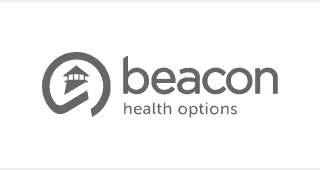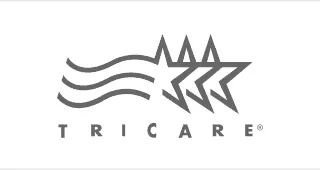Trazodone is primarily an antidepressant available commercially as a generic prescription drug. Though it has sedative properties, it has also been used to treat certain anxiety disorders and dementia-related agitation. Others use it as a sleeping aid, and also as a solution for erectile dysfunction. With the disparate applications, trazodone is being put to, it’s no surprise that the answer to the question “Can you overdose on trazodone” is YES.
How Much Trazodone Would Cause An Overdose?
Generally speaking, unless a chemical or substance is inherently a poison, an overdose would usually depend on certain things, such as what was mixed with it, how soon and in what quantity it was absorbed by the system of the person, and other factors.
In the case of trazodone, the typical daily dose is around 150 mg, although there have been cases where a higher dosage was deemed necessary. As a precaution, however, a dosage that exceeds 600 mg in less than 24 hours is already well within overdose territory. Complications that could lead to death could also come from mixing even an acceptable amount of trazodone with other substances, such as alcohol.
What Are Some Symptoms of Trazodone Overdose?
Addiction to trazodone might not always lead to death, but some aberrant symptoms will manifest after repeated use. The most obvious symptom of a trazodone overdose would be death or being left in a coma-like state, unable to regain consciousness. It is among the most abused substances and difficult to kick for those addicted to it.
Unlike other abused substances that mostly manifest in one or two symptoms, repeated use of trazodone tends to affect multiple bodily systems at once. This usually brings about several symptoms that could manifest one after the other, or sometimes all simultaneously, with varying severity. In some cases, the symptoms are not even those the person is predisposed to.
Cardiovascular Symptoms
These symptoms are quite alarming as they simulate the warning signs that one is about to have a heart attack. They are also quite dangerous in that these symptoms are already debilitating to a certain extent. Having a low and irregular pulse means the heart is underperforming and, therefore, not bringing enough oxygenated blood to where it is needed, such as the brain and other organs.
Some with low blood pressure feel extremely weak or even lose consciousness. This is particularly dangerous as there are typically no warning signs when this happens. It could cause the person to lose consciousness while driving, going up the stairs, or in places where help might not be readily available.
Neurological Symptoms
Trazodone abuse also largely affects the nervous system, leading to symptoms that could hinder the person periodically or for long periods, depending on the severity. The sleep-related effects of trazodone are peculiar in that some find it difficult to get decent rest because of insomnia caused by it. In contrast, others enter a coma-like state and cannot regain consciousness.
Some also lose their motor control or ability to focus due to dizziness or drowsiness from trazodone, which becomes a danger when the person is driving or operating heavy equipment. This not only makes them a threat to themselves but to others as well.
Gastrointestinal Symptoms
Constant use of any substance could lead to the point where it becomes highly toxic to the body, much like a poison. This is also how the body reacts to too much use of trazodone. To flush it out of the system, the body will try to reject any ingested object either through vomiting or diarrhea.
Both conditions are usually accompanied by severe stomach pains or by nausea.
Trazodone also helps to counteract erectile dysfunction in some men, leading to more regular use. Frequent use, however, could result in painful, abnormal erections that last for hours. Such prolonged erections could permanently damage the blood vessels in the penis.
What if Someone Is Showing Signs of Overdose?
Seek medical help for the person who appears to be in distress. Take note if the person appears to have any medication on hand that they might have taken. This detail is one of the first things to be asked by emergency responders to help them assess the situation faster.
In the event that trazodone addiction is established, the medical staff would want to know how long the patient has been taking it, and if possible, in what quantity. Once the patient has been stabilized and deemed no longer in a life-threatening situation, detox and rehabilitation are certain to be a suggestion.
Recovery Through Achieve Wellness
More than just helping people kick a bad habit, we here at Achieve Wellness and Recovery structure our programs to help patients achieve a full and true recovery.
This means making sure they are equipped to live a normal life again once out of therapy. We are dedicated to helping patients stand on their own and get their dignity back, because that is what true recovery is all about.
We work with most insurance companies. Please note we are not affiliated with or endorsed by insurance companies.
No Medicaid Accepted.

Medically Reviewed By
Nicole Rettino-Lambert LCSW, LCADC, CCS, CCTP, CSTIP
Nicole Rettino-Lambert is a dually licensed clinician with over 20 years of experience working with children, adolescents, and adults in both addiction treatment and mental health treatment. Along with extensive experience in clinical work, she has held leadership roles in both inpatient and outpatient addiction treatments centers in New Jersey. Throughout her various leadership positions, Rettino-Lambert has developed clinical programming, assisted staff in their growth and development in the clinical field, and had the privilege of helping numerous individuals on their path to recovery.
As a clinician, Rettino-Lambert specializes in addiction trauma, mental health, self-harm behaviors, anxiety, intimacy issues, sex addiction, and personality disorders. She holds certifications as a clinical trauma professional and sex informed professional. Her passion and purpose as a clinician are to help individuals find their voice, purpose, and motivation through their recovery. She takes pride in being part of the process that helps those who are fighting for their lives to achieve both sobriety and wellness.In her role as a Clinical Director at Achieve Wellness and Recovery, Rettino-Lambert works tirelessly to ensure that her staff feels supported in their roles, continues their clinical growth and development, and is empowered to become the best versions of themselves. She firmly believes that all the staff are an essential part of clients’ recovery journey and that they deserve continuous compassion, empathy, acknowledgment, and support from leadership.





















